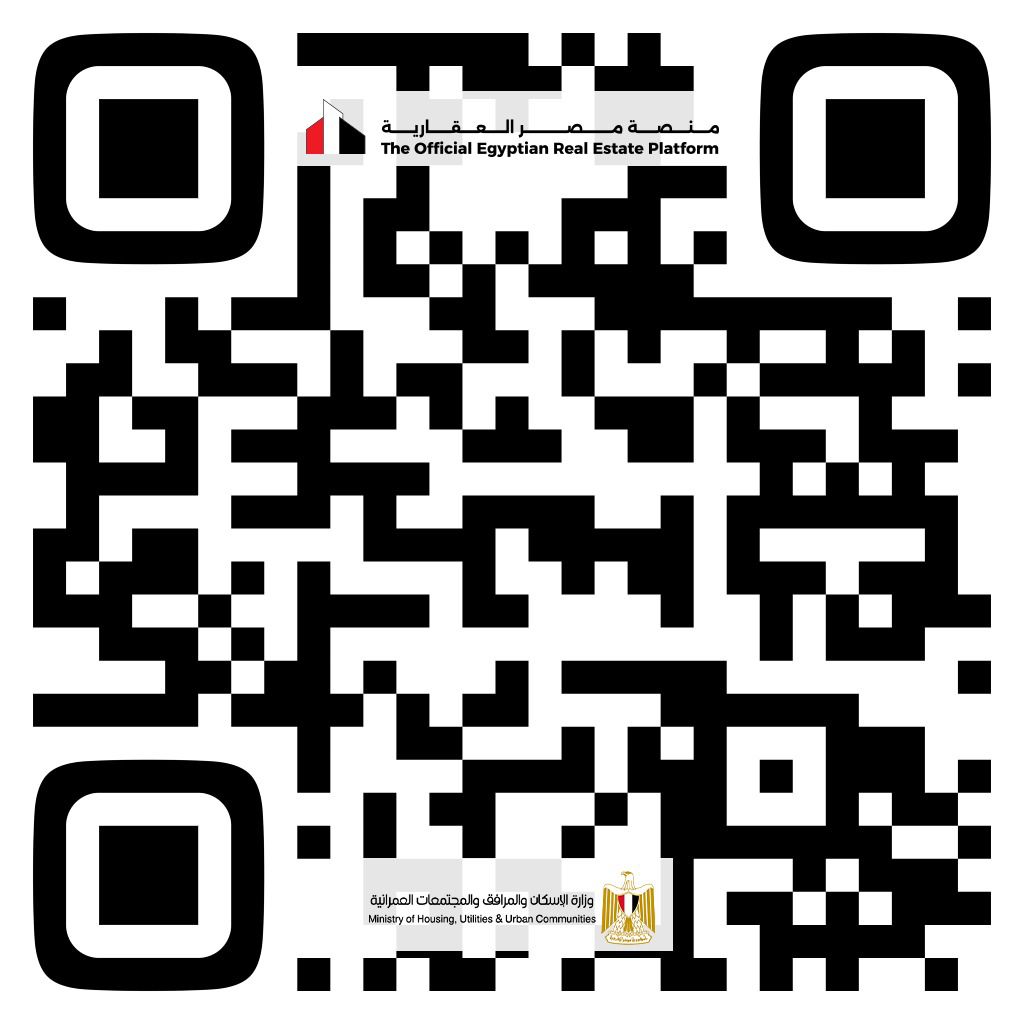Table of Contents
ToggleWhy Does Egypt Need an Official Real Estate Platform?
For decades, Egypt’s real estate sector has been a cornerstone of the national economy, but also a magnet for disorganization, duplication, and fraud. Have you ever found yourself wondering why property buying or renting in Egypt sometimes feels like navigating a maze? From inconsistent listings and unreliable brokers to overlapping property titles, the market has long required a structured, transparent, and centralized system. That’s exactly why Egypt launched its first official real estate platform: to empower governance and protect both citizens and investors.
What Is This Platform and Why Is It Revolutionary?
Egypt’s official real estate platform is a bold government-led initiative aimed at digitizing the national property registry and listing systems. Managed under the umbrella of the Ministry of Housing and Urban Communities, this platform isn’t just another property website. It is the first of its kind in the Middle East and the Arab world to operate using MLS (Multiple Listing Service) technology. The platform acts as a unified digital ecosystem where every registered property has a unique identity, every listing is verified, and every transaction is traceable. It empowers not only governance but also investors, developers, and everyday citizens.
How Is the Egyptian Real Estate Market Structured?
Egypt’s real estate market is a dynamic and expansive arena that includes residential, commercial, and industrial sectors. From new cities like New Alamein and the New Administrative Capital to longstanding districts in Cairo and Alexandria, development has been rapid. Yet, without a central registry or verified listing mechanism, the market has faced major challenges. Duplicate listings, unclear ownership rights, and unauthorized brokers have created mistrust. This platform aims to change that narrative entirely, introducing order and clarity to a market that has often functioned in silos.
What Is the MLS Concept and Why Is It Important?
Have you heard of the term MLS before? MLS stands for Multiple Listing Service, a system widely used in the United States and Europe where real estate professionals share listings in a centralized database. It ensures that buyers and sellers get the most accurate, up-to-date property data. Egypt’s platform adopts this model to offer a transparent and synchronized real estate environment. By integrating MLS technology, the platform allows agents, developers, and authorities to access the same property records, ensuring fairness and eliminating manipulation.
How Does the Property ID Law Tie into This Platform?
The new Property ID law is a legislative milestone that underpins the integrity of the real estate platform. Each property in Egypt is now required to have a unique identifier that verifies its ownership, legal status, and zoning information. This ID system feeds directly into the MLS framework, acting as a safeguard against duplicated or falsified property entries. So when you search for a property on the platform, you’re not just seeing a listing—you’re seeing a verified, government-approved record.
When and How Was the Official Egypt Real Estate Platform Launched?
The official launch of Egypt’s real estate platform was a landmark moment, unveiled during a national conference on digital transformation in the presence of top government officials. This move was preceded by months of collaboration between the Ministry of Housing, local municipalities, and real estate technology consultants. The goal was not just to create a digital listing tool but to build a fully integrated regulatory ecosystem. Since its launch, the platform has quickly gained traction with real estate professionals and the public alike.

What Is the Main Purpose of the Platform?
The primary goal of the platform is to ensure full transparency in property transactions. But its purpose goes beyond that. It aims to standardize the real estate industry in Egypt, curb fraudulent practices, enhance public trust, and offer a one-stop hub for all real estate-related services. Whether you’re buying, selling, renting, or simply verifying ownership, the platform provides tools and data that empower you to make informed decisions. This isn’t just about technology—it’s about safeguarding citizens and promoting sustainable urban development.
Why Is This a Technological Milestone in the Region?
Did you know that this is the first MLS-based platform in the Middle East and the Arab world? That makes Egypt a pioneer in adopting international real estate technology standards. The MLS backbone offers unmatched features such as listing history, broker collaboration, geolocation accuracy, and automated compliance checks. This innovation positions Egypt as a leader in regional digital governance, setting a benchmark that other nations may soon follow.
How Does the Platform Protect Citizens Against Fraud and Duplication?
Imagine a world where you never have to worry if a property listing is fake or duplicated. That’s the kind of security this platform provides. Through a combination of Property ID verification, MLS listing rules, and artificial intelligence filters, the system automatically flags suspicious entries. Brokers and developers must register and gain official approval before listing. This ensures that only authenticated and legal properties appear online. It’s not just a win for homebuyers—it’s a victory for consumer rights.
How Does the Platform Provide Official and Reliable Data?
When it comes to real estate, data is power. The platform integrates government-approved property IDs, MLS record numbers, and municipal zoning information into every listing. This means that users can easily verify ownership, land use type, and permit history. All data is cross-checked with governmental databases, offering a level of credibility never before seen in Egypt’s property market. Whether you’re a first-time buyer or a seasoned investor, this kind of transparency is a game-changer.

What Role Do QR Codes Play in the Platform?
Have you noticed the rising use of QR codes in everything from menus to mobile payments? Egypt’s real estate platform uses this same technology to boost trust and transparency. Each verified listing comes with a unique QR code that can be scanned to pull up the property’s full verified profile. From ownership status to transaction history and developer credentials, the QR code provides instant access to official records. It’s a small square with enormous impact.
What Level of Government Support Does the Platform Receive?
This platform isn’t just supported by the government—it’s driven by it. High-level backing from the Ministry of Housing, the Ministry of Communications and Information Technology, and various regional authorities ensures that the system is deeply integrated into Egypt’s broader digital infrastructure. Policy frameworks, data security standards, and public awareness campaigns all work in tandem to support its rollout. The government’s involvement guarantees long-term sustainability and widespread adoption.
What Is the Platform’s Impact on the Real Estate Market?
Since its launch, the platform has begun to reshape the dynamics of the Egyptian real estate market. Developers now have a clear channel to reach buyers. Brokers are held to professional standards. Buyers and renters enjoy new levels of confidence. Moreover, international investors now view Egypt as a safer and more transparent market, which could lead to increased foreign investment. Over time, we can expect to see better property valuation standards, fewer legal disputes, and more efficient urban planning.
Frequently Asked Questions
Is the platform free to use?
Yes, the platform offers free access to general users. However, brokers and developers must go through a licensing and verification process.
Can foreigners use the platform to buy property in Egypt?
Yes, the platform is open to foreign investors and includes guidelines for non-Egyptian property ownership.
How can I register my property on the platform?
Property owners need to obtain a Property ID from their local municipality. Once approved, they can list the property through an authorized agent or developer.
What makes this platform different from private real estate websites?
Unlike private platforms, this one is government-backed and fully integrated with national property databases, ensuring 100% verified listings.
How often is the data updated?
Listings and data are updated in real time, thanks to integration with government databases and broker systems.
Egypt’s official real estate platform is more than a digital tool—it’s a visionary leap toward structured governance and public empowerment. By merging advanced technology with state policy, the platform is transforming how properties are listed, sold, and purchased in Egypt. It addresses long-standing inefficiencies while setting new benchmarks in transparency, security, and convenience. As adoption grows and new features roll out, this platform could very well redefine the landscape of real estate, not just in Egypt, but across the region. Are you ready to be part of this transformation?
